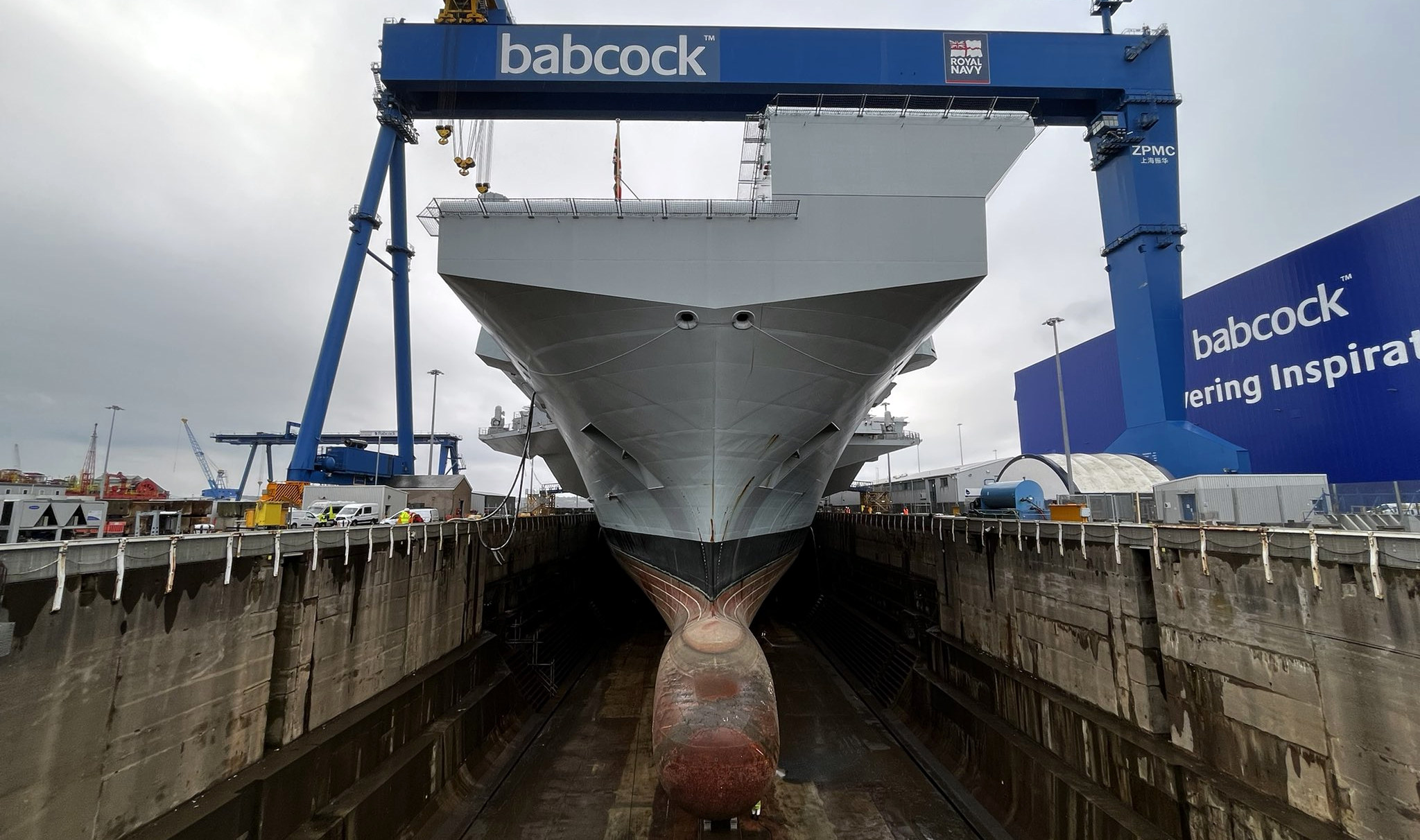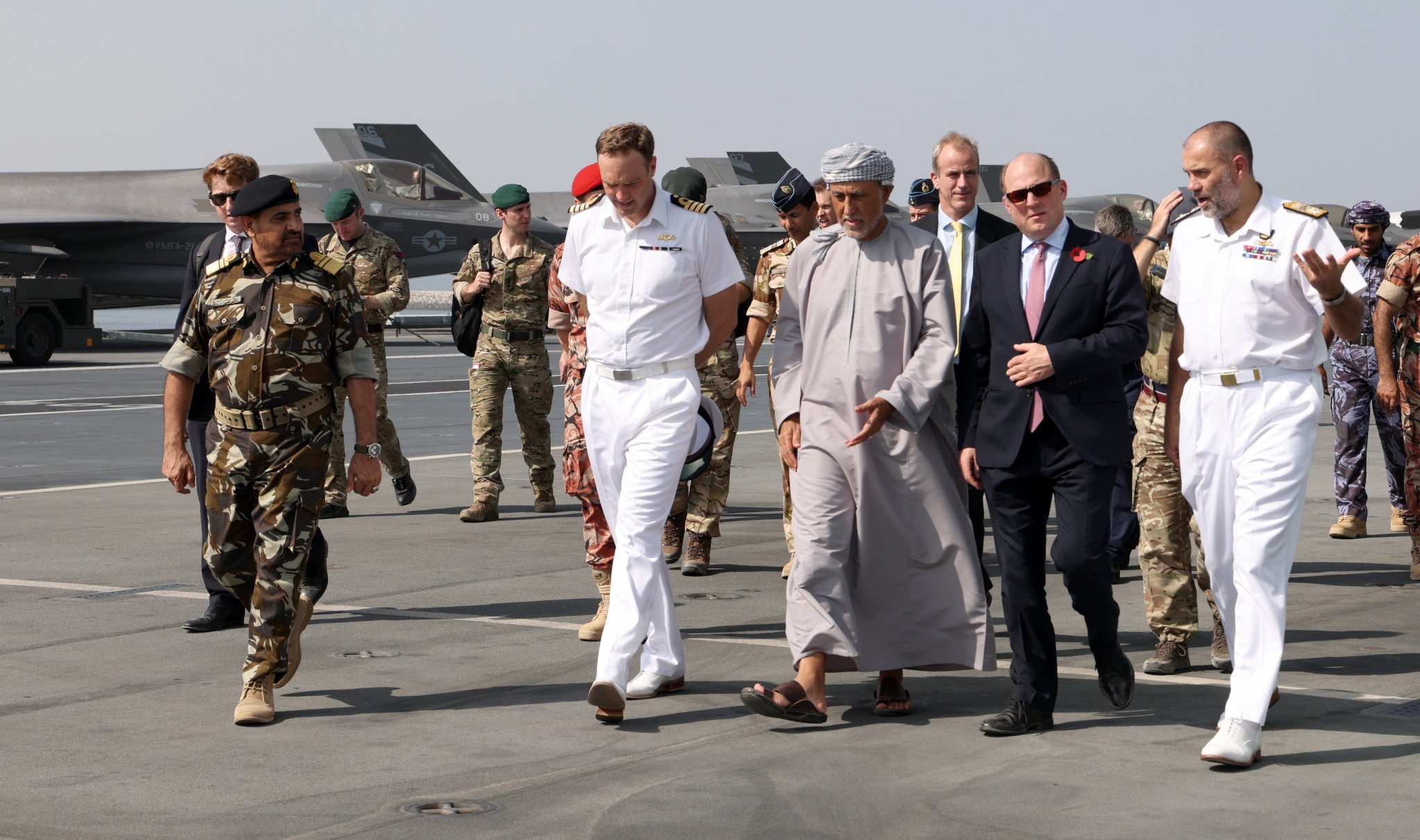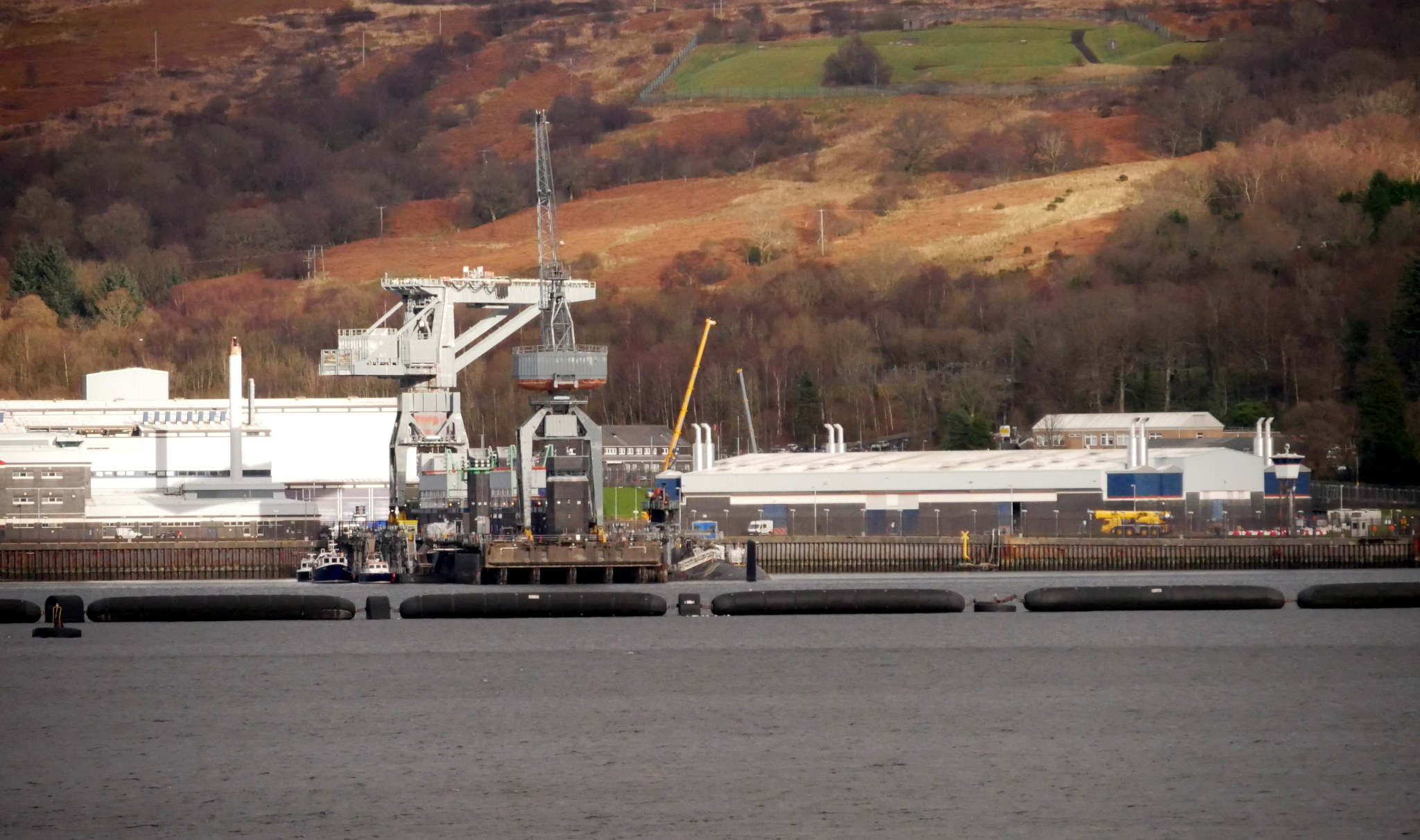As the UK faces another round of austerity to schools and hospitals from the new chancellor Jeremy Hunt, amid a growing cost of living crisis, tens of billions of pounds of public money are being wasted on unusable and extravagant weapons systems, irrelevant to modern conflict.
The government wants to award the armed forces close to £200bn extra by 2030 – the biggest increase in their budget since the start of the Cold War. By then their spending would double to £100bn a year.
Threatening to resign – along with his boss, defence secretary Ben Wallace – if the armed forces did not get these huge increases, defence minister James Heappey says: “There is no prosperity without security”.
The reverse is true; there is no security without prosperity. Influence in today’s world, as one of Britain’s most senior diplomats has said, is composed of many things, notably a strong economy. And nuclear weapons are among the least relevant.
“If Jeremy Hunt wants to seek ‘efficiency savings’ in government, he does not have far to look”
The demands of the armed forces, and arms companies and lobby campaigns on their behalf, are particularly astonishing as they are made against the background of such profligacy that would be embarrassing had it not been so successfully ignored.
If Jeremy Hunt wants to seek “efficiency savings” in government, he does not have far to look. There have been years of damning reports from MPs and parliament’s spending watchdog, the National Audit Office, on the waste of public money by the Ministry of Defence (MoD).
The Ajax debacle
To take one current example: the ministry has spent more than £3bn of the public’s money, with the prospect of having to pay out £2bn more, on an armoured car called Ajax. The vehicle, tests show, deafens and injures the occupants, it cannot reverse over obstacles more than 20 centimetres high, and is too unwieldy to fit in the RAF’s transport aircraft.
The project was conceived in 2010 and due to be completed in 2017. By December 2021 the MoD had paid £3.2bn for just 26 Ajax vehicles, none of which it can use.
Defence minister Alec Shelbrooke said recently he “cannot determine a realistic timetable” about when the Ajax would be operational. Some defence industry commentators say it never will be.
The company pocketing billions from the Ajax is the UK subsidiary of the American company, General Dynamics. The company’s manager of the project is Carew Wilks, a former army general in charge of the MoD’s “land equipment” department. General Sir Peter Wall, a former head of the army, was appointed a non-executive director of the company.
“It’s time for the MoD to learn lessons, rather than simply identifying them”
The Commons Public Accounts Committee (PAC) castigated the MoD in a recent report: “We have seen similar failings again and again in the Department’s management of its equipment programmes”, it said.
“The Ajax programme also raises serious concerns about the Department’s processes and culture for testing whether new equipment is safe to use.”
It continued: “The recent Russian invasion of Ukraine only reinforces the urgent need for the Department to reform, prioritise and effectively manage its expenditure to ensure the Armed Forces can secure all the equipment that they need in the quickest possible time.
Edward Arnold, a research fellow with the partly UK government-funded Royal United Services Institute, said the Ajax saga had moved “from a technical problem to a cultural one at the heart of the MoD.”
He added: There still appears to be an inability for individuals to show leadership, moral courage and accountability…It’s time for the MoD to learn lessons, rather than simply identifying them”.
‘Wastage of taxpayers’ money’
It is not the first time the criticism has been levelled at the MoD. The devastating Chilcot report into the 2003 invasion of Iraq noted: “The MoD is good at identifying lessons but less good at learning them.” It has still not learned.
In a report last year the PAC said it was “extremely disappointed and frustrated by the continued poor track record of the MoD and its suppliers…and by wastage of taxpayers’ money running into the billions.”
It was “deeply concerned about departmental witnesses’ inability or unwillingness to answer basic questions and give a frank assessment of the state of its major programmes”.
The Committee also said the ministry did not know how the extra £16.5bn it was awarded in the 2020 Spending Review would benefit the armed forces. It warned that the money “could be swallowed whole by the up to £17.4bn funding black hole at the centre of our defence capabilities.”
‘Unaffordable vulnerable metal cans’
The allure of notionally prestigious weapons systems has seduced Labour as much as the Conservatives. Gordon Brown enthusiastically backed Blair’s agreement to build two aircraft carriers, the largest warships built for the Royal Navy, in Rosyth, close to Brown’s Scottish constituency.
Their combined cost, initially estimated at less than £4bn, rose to more than £6bn.
They are designed to carry the short take-off and vertical landing (STOVL) version of US F35 Lightning II jets. This version of Lockheed Martin’s F35s has a shorter range and smaller payload than the alternative catapult and arrester gear (“cats and traps”) version that was abandoned on grounds of cost.
The MoD’s plan to buy 48 jets for the two carriers – the Queen Elizabeth and the Prince of Wales – is estimated to cost £18.8bn over 30 years.
The carriers are extremely vulnerable to long range missiles being developed notably by China, making a mockery of the “show of strength” hailed by the MoD when the Queen Elizabeth was deployed to the Pacific in 2021.
Lord Richards, the former chief of the defence staff, described the carriers to me as “behemoths…unaffordable vulnerable metal cans”.
And at precisely the moment we are at greatest risk of war with Russia, one of the carriers is marooned in Rosyth, being repaired for a leaking propeller – a problem that has persistently plagued the vessel.
The government says the Prince of Wales carrier has spent 267 days at sea and 193 days undergoing repairs since it was commissioned in December 2019.
Disastrous decisions
In another egregious waste of money, a fleet of new and much-delayed Nimrod reconnaissance aircraft were scrapped at a cost of £4bn in the 2010 defence review on the grounds they would cost too much.
The MoD wastes public money even when it comes to providing the most basic services. The National Audit Office revealed in 2018 that the ministry was £4.2bn worse off for selling married quarters to a Guernsey-based company – at a time there was a £40bn black hole in its weapons programme.
The MoD has been forced to apologise for the squalid and even dangerous state of the homes for armed forces families.
I have estimated, taking into account National Audit Office and PAC reports that at least £300bn over the past 20 years have been wasted on disastrous defence and military decisions, including the wars in Iraq and Afghanistan.
Labour and nuclear arms
Labour has belatedly pointed to the MoD’s abuse of public money, raising the £13bn the ministry has admitted wasting since 2010.
What Labour is not doing is questioning the cost, of at least £200bn, of Britain’s nuclear weapons programme, a figure not disputed by the MoD. Sir Keir Starmer has stated that Labour’s “support for nuclear deterrence is non-negotiable”.
Tony Blair commented in his memoir, A Journey, that Trident’s military use was “non-existent” but to give it up was “too big a downgrading of our status as a nation”.
The leadership of both main parties has conspired to prevent any meaningful Commons debate about the credibility of a British “nuclear deterrent”.
Successive governments have described nuclear weapons as the “ultimate insurance” against a nuclear attack. Yet they have failed to insure against very real threats, most recently of a pandemic, and invest adequately in weapons relevant to modern conflict, including drones and countering cyber attacks.
Instead, the government continues to feed the profits of arms companies by indulging in the sheer hypocrisy of supporting lucrative arms contracts with Saudi Arabia and other despotic states of the Gulf.
While loudly attacking the abuse of human rights in China and elsewhere, it promotes British arms sales to some of the world’s biggest abusers of human rights – under the guise of protecting Britain’s security. And Labour leaders turn away.




